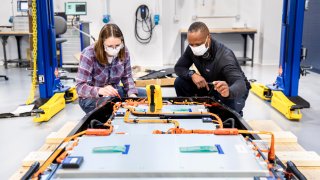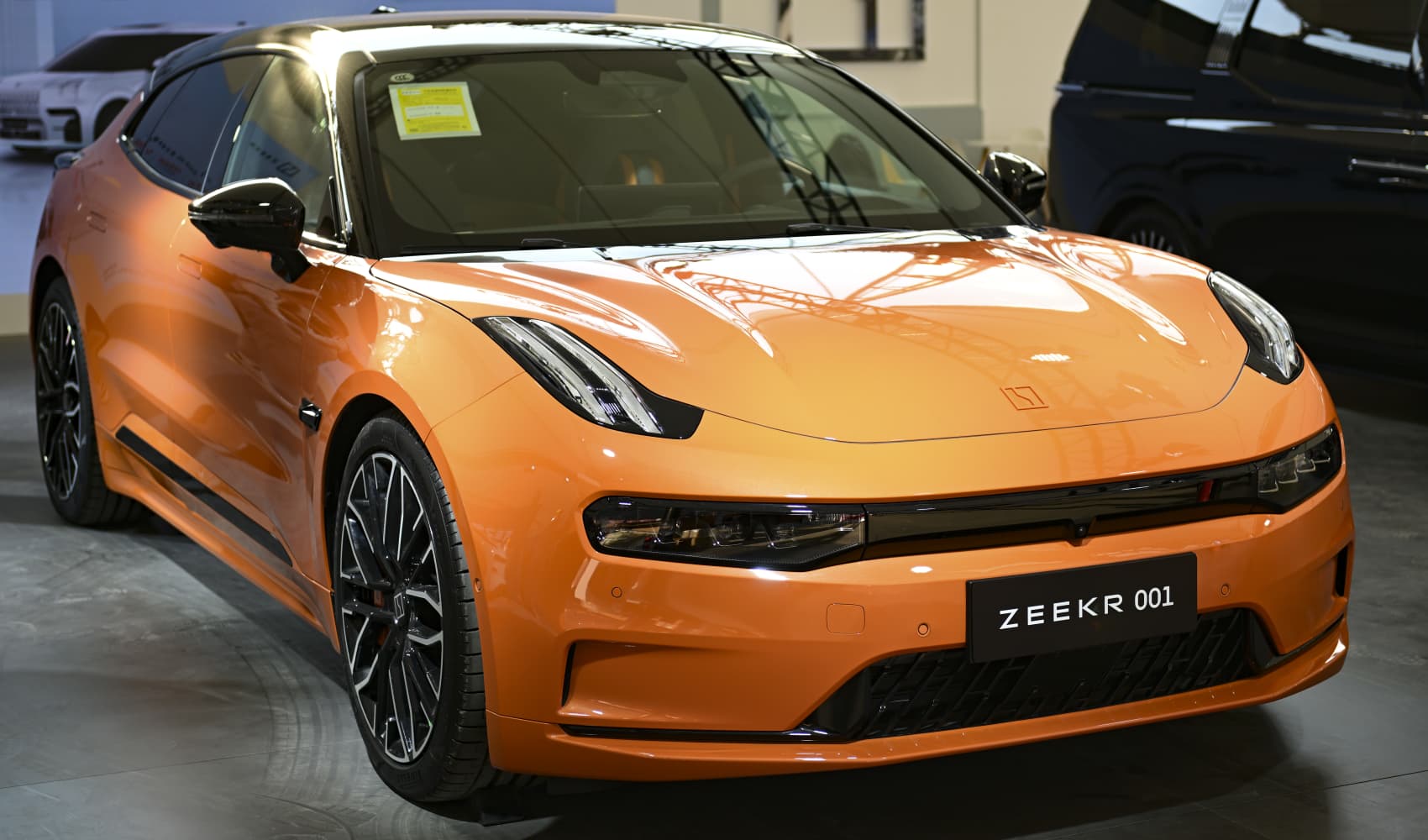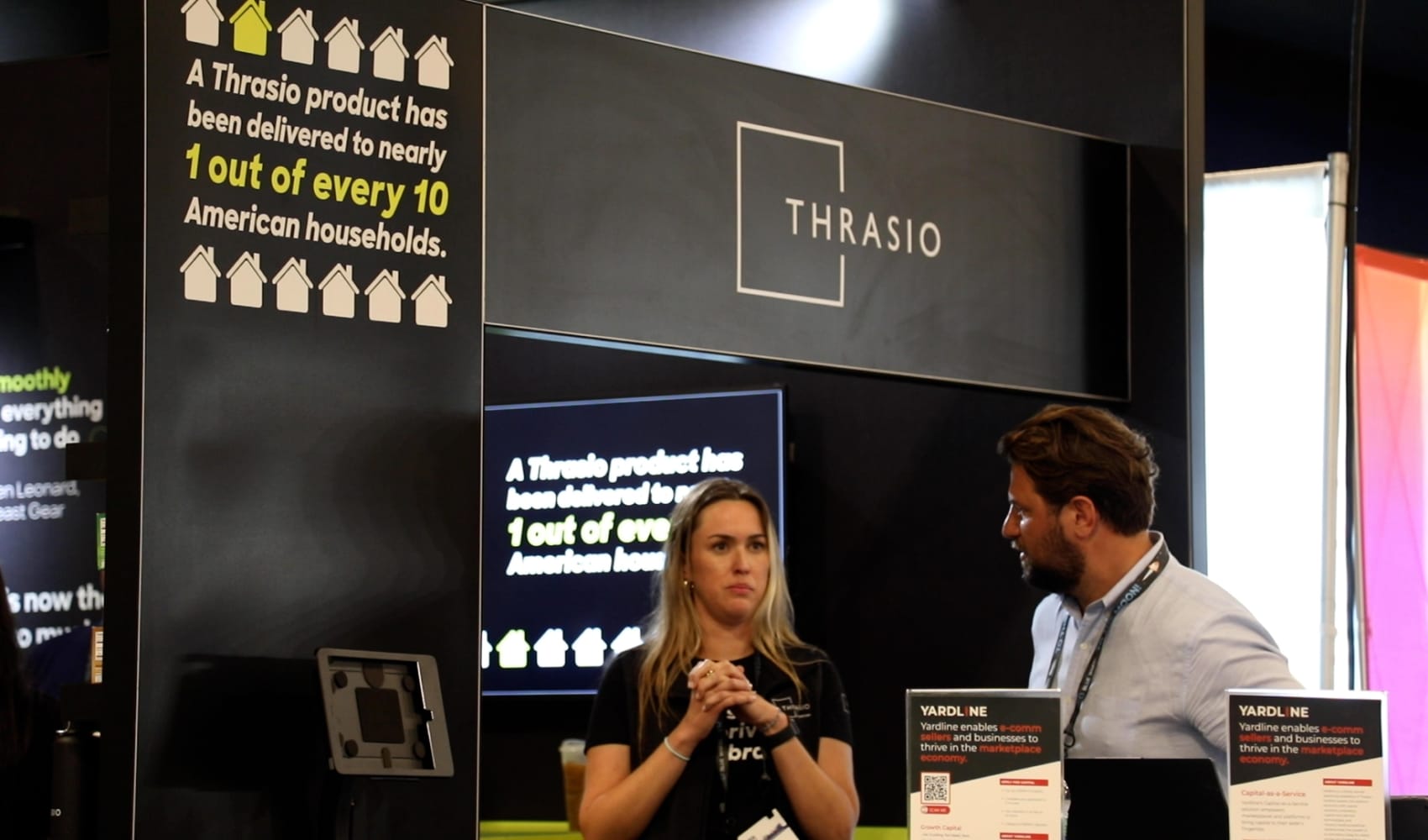
- As supply chains globally remain in distress, automakers are spending billions to localize production of battery cells to meet what's expected to be a rapid adoption in electric vehicles.
- Other than Tesla, the country's electric vehicle sales leader, automakers have been reluctant to invest in battery cell production until recently.
- Based on a rolling five-year average of announced investments, AlixPartners expects companies to invest $330 billion in the next five years throughout the EV supply chain globally.
As supply chains remain in distress across the globe, automakers are spending billions to move production of battery cells to their home countries to meet what's expected to be rapidly growing demand for electric vehicles over the next decade.
Automakers from Detroit to Japan plan to simplify supply chains to lower costs, ease logistics and avoid massive disruptions. A global shortage of semiconductor chips has highlighted the industry's reliance on overseas manufacturers for the parts.
Those based in or that have large operations in the U.S. are also hoping to appease the Biden administration, which has called for companies to bring supply chains to the U.S.
Get San Diego local news, weather forecasts, sports and lifestyle stories to your inbox. Sign up for NBC San Diego newsletters.
Other than Tesla, the country's electric vehicle sales leader, automakers have been reluctant to invest in battery cell production until recently. Instead, they've relied on suppliers, largely based in Asia, to build such parts. Many, including Tesla, have or plan to partner with battery cell suppliers such as Panasonic and LG Chem to produce the parts.
"There's the rapid electrification that's going to happen, plus the Covid-19 semiconductor shortage has really taught us that we need to do more than just rely on battery as a commodity," said Arun Kumar, a managing director in the automotive and industrial practice at AlixPartners. "You're going to see this accelerate even more, in our viewpoint, primarily because localization becomes an important factor, if you really think about producing batteries at scale."
Money Report
Electric vehicles are powered by battery packs that have modules, which hold the cells. The packs are by far the most important and costly part of an EV. They can also weigh hundreds to thousands of pounds, making shipping more difficult than smaller items such as small semiconductor chips.
$330 billion in EVs
Based on a rolling five-year average of announced investments, AlixPartners expects companies to invest $330 billion in the next five years throughout the EV supply chain globally. About a third of that is expected to be for batteries, largely in the China and Europe, while the U.S. attempts to catch up.
That forecast is up by 65% from an expected $200 billion from 2018, according to Kumar.
"Electrification is occurring faster than many were thinking even a few years ago," he said. "The plans OEMs have in place have started to change dramatically."
The investments are being made in preparation for new demand. While plug-in vehicles, including all-electric and plug-in hybrids, are forecast to only account for 4% of the U.S. market this year, there's expected to be a rapid adoption globally over the next decade, including the U.S.
AlixPartners expects about 28% of vehicles globally to be EVs by 2030. In the U.S., LMC Automotive expects about a third of new vehicles sales in the U.S. to be EVs by then.
Panasonic, led by Tesla, is the country's largest producer of battery cells, according to a report by Argonne National Laboratory that was written for the U.S. DOE's Office of Energy Efficiency & Renewable Energy. The Japanese company supplied battery cells to 70.9% of vehicles sold in 2020 in the U.S., according to the report.
But others, such as LG Chem and SK Innovation, are partnering with automakers and making their own moves.
'Increasingly going vertical'
Automaker Stellantis, formerly Fiat Chrysler, and LG Chem's Energy Solution spinoff on Monday announced an agreement to form a joint venture to produce battery cells and modules for North America. The companies did not provide financial details, but it will add to billions in already announced investments.
Toyota Motor on Monday also said it plans to invest about $3.4 billion (380 billion yen) on automotive battery development and production in the United States through 2030, including a new $1.3 billion battery plant.
"The 10s of billions of dollars that are being invested by most of the big automakers over the next five to 10 years on making the transition to electric, the last thing they want to do is be stuck without key components that they need whether it be batteries or chips," said Guidehouse Insights principal analyst Sam Abuelsamid. "They are increasing going vertical in some cases or diversifying their supplies in other cases."
The announcements Monday come after Ford Motor said last month it will invest more than $11.4 billion in new U.S. facilities that will create nearly 11,000 jobs to produce electric vehicles and batteries, including twin lithium-ion battery plants in central Kentucky through a joint venture with SK Innovation.
"Due to Covid and now the reaction to the semiconductor shortage, our government and companies are looking to onshore," said James Lewis, a senior vice president with the Center for Strategic and International Studies, which works with automakers. "Car companies in particular don't want to get caught out again the way they were caught out on chips."
U.S. plants
Following Tesla's lead, General Motors could be next to produce it's own battery cells and packs in the U.S. Through a joint venture with LG Energy Solution, the Detroit automaker is scheduled to begin cell production at an Ohio plant next year. The plant is expected to be the first of at least four, including another announced in Tennessee, in the coming years.
There are 27 battery facilities, including cells and packs, that have been announced or are currently operating in the U.S., according to the Center for Automotive Research.
Separately from the battery plant announcements, iPhone maker Foxconn, which is preparing to produce EVs, on Monday said it plans to produce electric cars and buses for auto brands in China, North America, Europe and other markets.
The Taiwanese company last month announced it will purchase an Ohio factory from embattled EV start-up Lordstown Motors for production of a vehicle for the company as well as EV start-up Fisker.
"This is the wave of the future," Lewis said. "This is a modernization of our auto industry."






